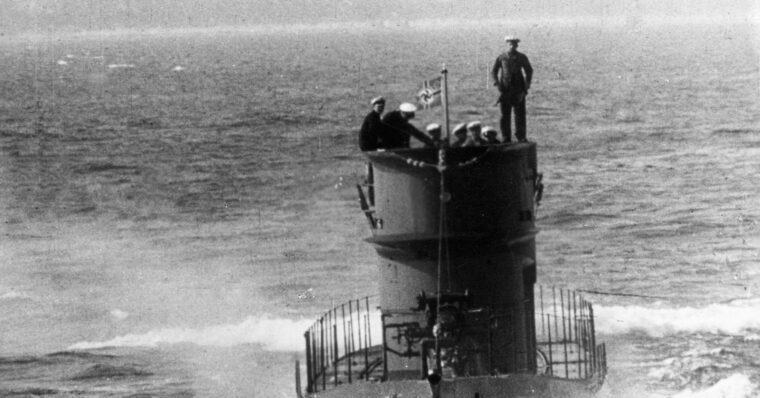
Phony War
German U-Boats: Scapa Flow Shock
By Jon LatimerWorld War II had been in progress for six weeks when on the evening of October 12, 1939, the German submarine U-47 surfaced off the Orkney Islands at the northern tip of Scotland. Read more

Phony War
World War II had been in progress for six weeks when on the evening of October 12, 1939, the German submarine U-47 surfaced off the Orkney Islands at the northern tip of Scotland. Read more
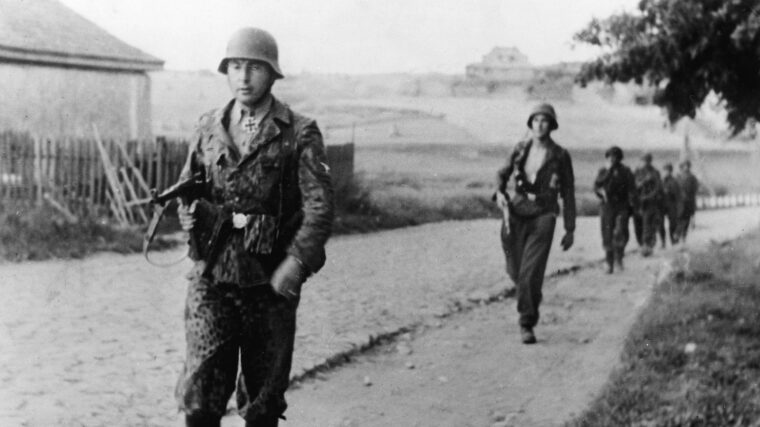
Phony War
Leon Degrelle was born in 1906 in Belgium to a prosperous family in the French-speaking region of Wallonia. Read more
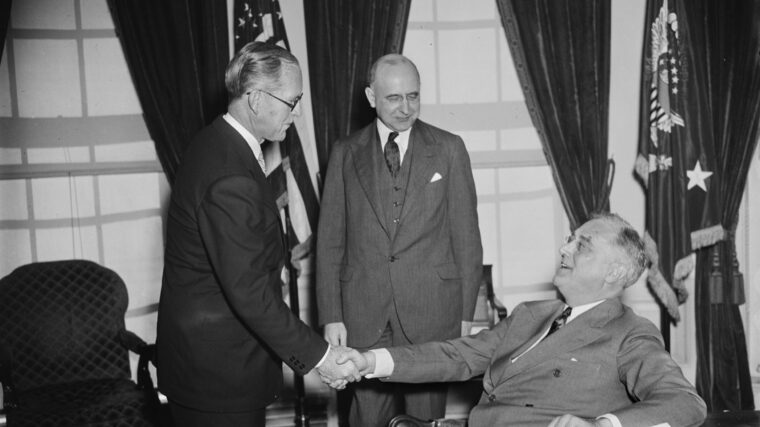
Phony War
In 1939, Joseph P. Kennedy, the scion of the modern-day Kennedy family which included three United States senators, an attorney general, and the 35th president of the United States, was appointed the American ambassador to Great Britain by President Franklin D. Read more
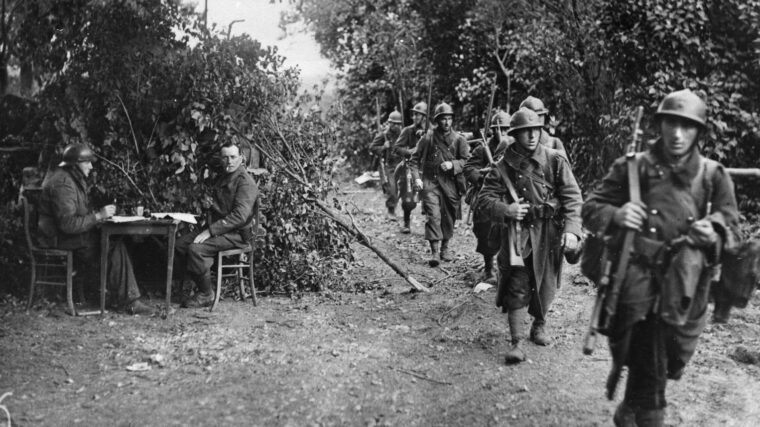
Phony War
The attack was beginning despite the widespread lack of artillery support, engineers, or armor. Normally this would be a recipe for disaster. Read more
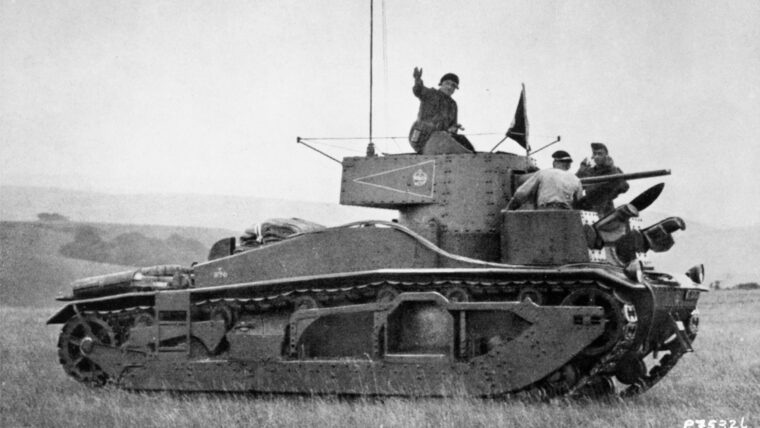
Phony War
An army that will be poised for victory requires élan, military intellect, a penchant for tactical and strategic innovation, and the zeal to use the most qualified individuals for training and leadership. Read more

Phony War
Visitors to a certain part of Rome today may not even be aware that they are walking in an area that came about because of an architectural vision of Benito Mussolini, Italy’s infamous fascist dictator. Read more
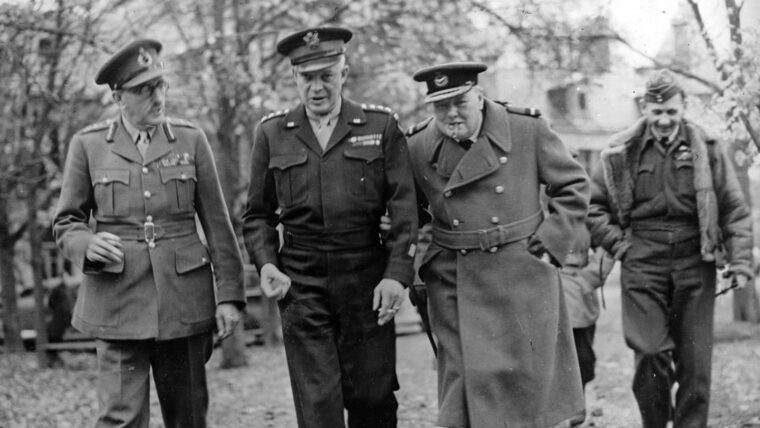
Phony War
British historian Alan Clark wrote in his book Barbarossa, “Roosevelt’s betrayal of Eastern Europe, whether out of calculation or gullibility, is so notorious as to need no further recapitulation.” Read more
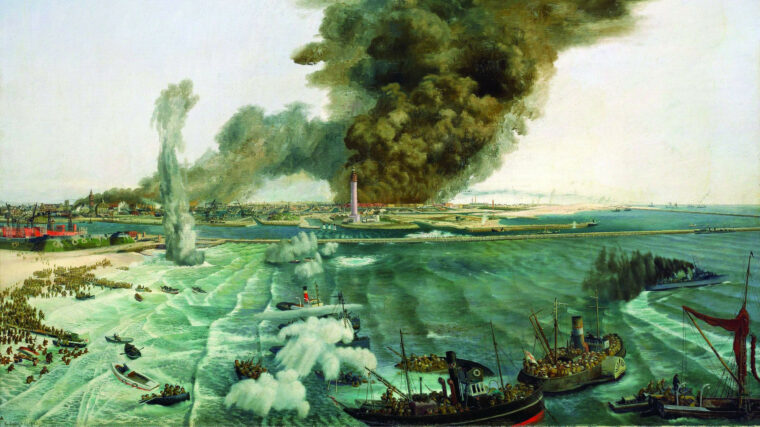
Phony War
Following the 76th anniversary of the evacuation of the British Expeditionary Force (BEF) from the beaches and harbor of Dunkirk, one is amazed at the number of articles and volumes written about the subject. Read more
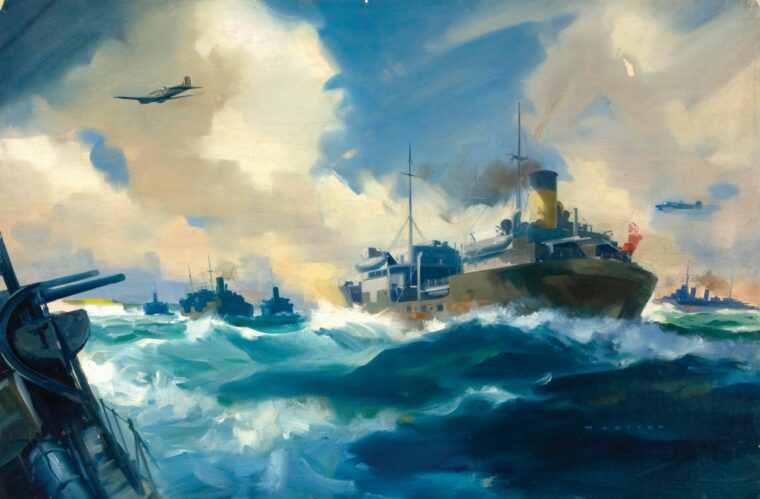
Phony War
Between September 1939 and December 1941, the United States moved from neutral to active belligerent in an undeclared naval war against Nazi Germany. Read more
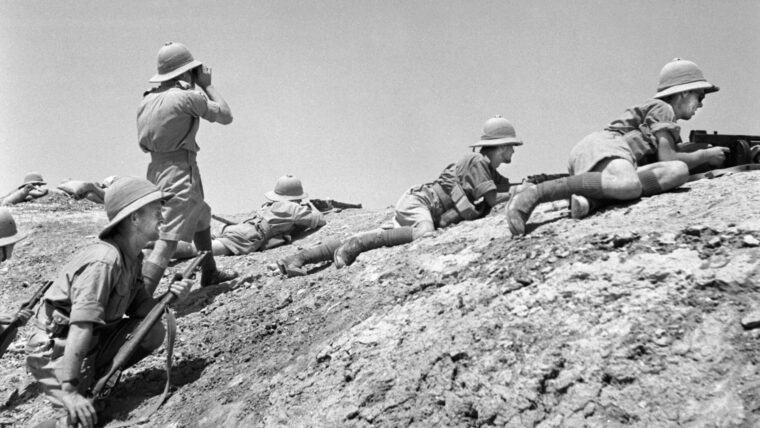
Phony War
Many students of World War II history know General Sir Claude Auchinleck as the Commander-in-Chief Middle East, who, after taking over for General Sir Archibald Wavell in late June 1941, oversaw the fluctuating fate of Britain’s Eighth Army while combating German General Erwin Rommel’s Afrika Korps during Operations Crusader and Gazala. Read more
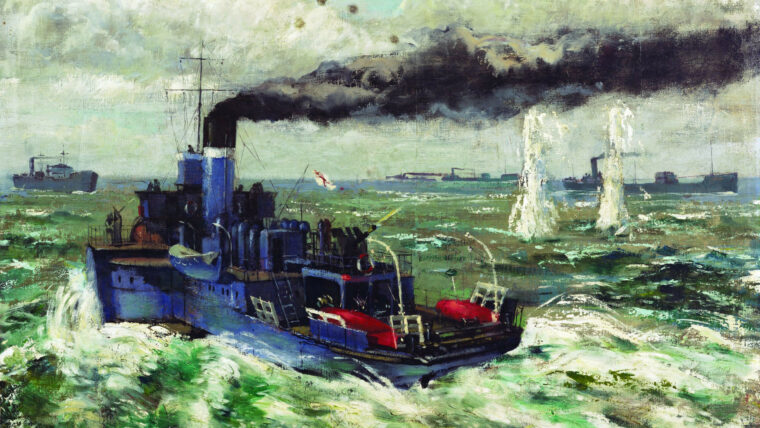
Phony War
None of the Allied services engaged in World War II was in action longer or suffered a higher percentage of casualties than the British Merchant Navy. Read more
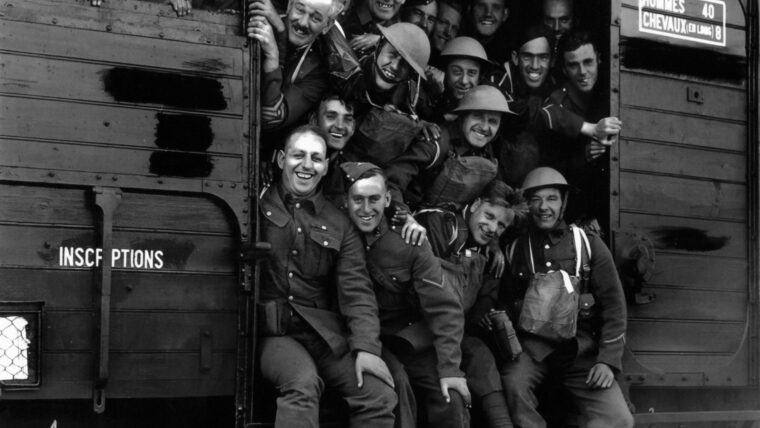
Phony War
Lord John Vereker, 6th Viscount Gort, Commander in Chief of the British Expeditionary Force (BEF) in France in 1940, and his chief of staff, General Henry Pownall, have both been forever associated with the British Army’s greatest continental defeat; namely, the retreat through Flanders and eventual evacuation from the harbor and beaches of Dunkirk in May and June, after being engaged with the invading German Wehrmacht for only three weeks. Read more
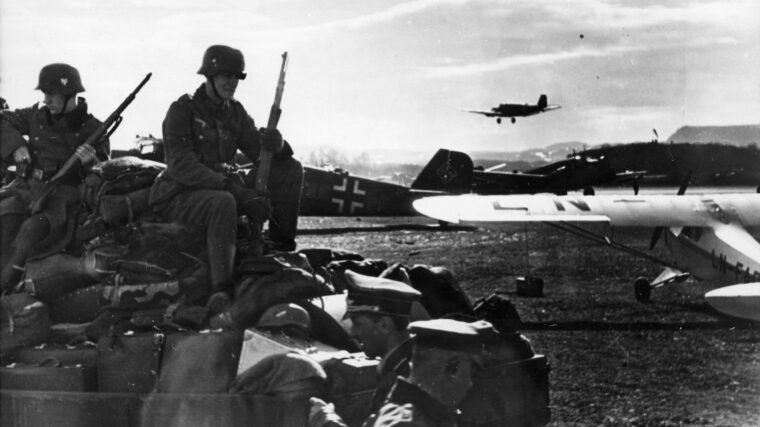
Phony War
The second week in April 1940 was a stormy period in the North and Norwegian Seas. The weather deteriorated during April 7, with low cloud cover and fog. Read more
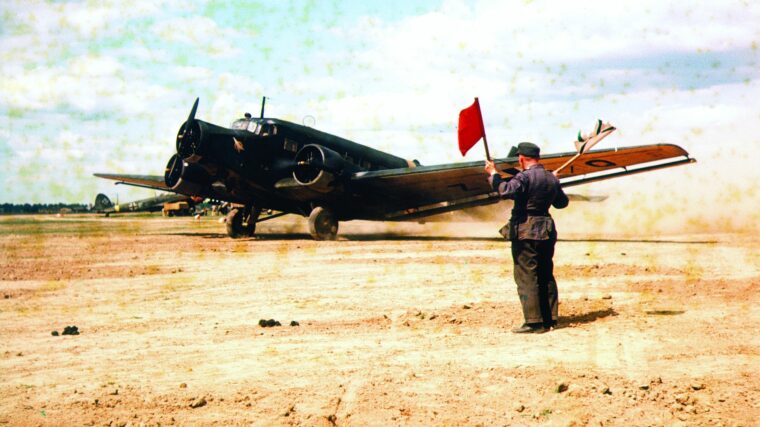
Phony War
Shortly before dawn on May 20, 1941, a flight of 500 transport planes took off from seven airstrips on mainland Greece. Read more
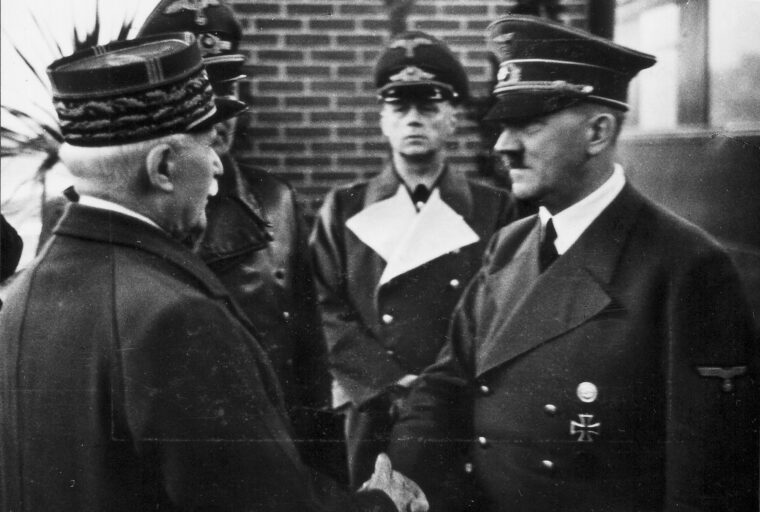
Phony War
He was, in the truest sense, a national hero. Philippe Pétain, Marshal of France, the hero of Verdun, is, however, best remembered in the modern world as a traitor, a collaborationist who sacrificed the honor of France to make a deal with Hitler and the Nazis. Read more
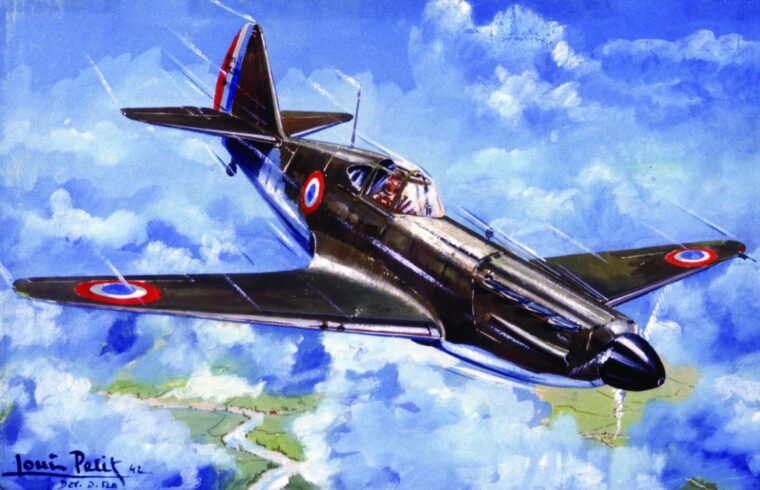
Phony War
In the annals of World War II, one of the most famous airplanes is the British-developed Supermarine Spitfire, an agile, elliptical-wing fighter that has become synonymous with the Royal Air Force victory in the Battle of Britain. Read more
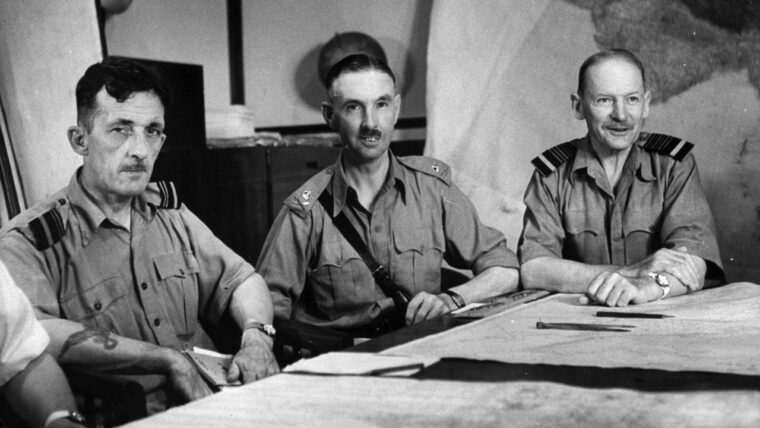
Phony War
On February 15, 1942, the island fortress of Singapore surrendered with 130,000 men, thus ending the defense of Malaya as one of the largest military disasters in the history of British arms since Cornwallis’s capitulation to Franco-American forces at Yorktown in 1781 during America’s Revolutionary War. Read more
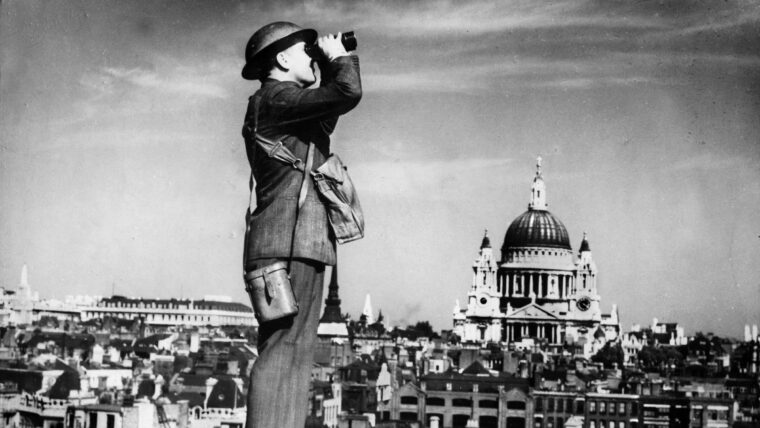
Phony War
Within hours of the entry of Great Britain and France into World War II on September 3, 1939, the British liner SS Athenia was sunk by a German U-boat off the northwestern coast of Ireland, with the loss of 112 dead, including 28 American citizens. Read more